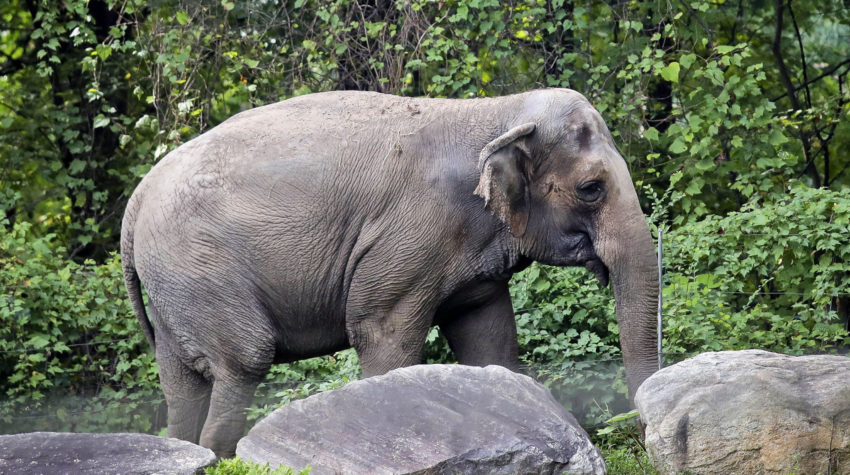
July 07, 2022Animal Law & Policy ProgramProfessor Kristen Stilt talks to Harvard Law Today about the campaign to release Happy the elephant from the Bronx Zoo
‘The court simply refused to extend to Happy the elephant the opportunity to prove, through her lawyers, that she deserves her freedom’
Rachel Reed recently interviewed Professor Kristen Stilt, Faculty Director of the Animal Law & Policy Program, about the campaign to release Happy the elephant from the Bronx Zoo. The introduction to the interview in Harvard Law Today is syndicated below with a link to the full interview.
In mid-June, the New York State Court of Appeals — the highest court in the state — issued an unusual decision that made headlines across the country. By a five-to-two vote, the panel of judges rejected a lawsuit claiming that Happy, an elephant at the Bronx Zoo who has lived in captivity since the 1970s when she was captured in Thailand as a baby, should be considered a person for purposes of habeas corpus and released.
The suit, filed by the Nonhuman Rights Project, an animal rights organization, had argued that because of Happy’s extraordinary intelligence — she is the first elephant to pass a mirror self-recognition test — and her lack of mobility and freedom at the zoo, she should be transferred out of captivity and placed in a sanctuary that more closely resembles her natural habitat.
Kristen Stilt, professor and faculty director of the Animal Law & Policy Program, talked to Harvard Law Today about animal rights, Happy’s case — and what it means that it even got this far.
Read the full interview in Harvard Law Today.
